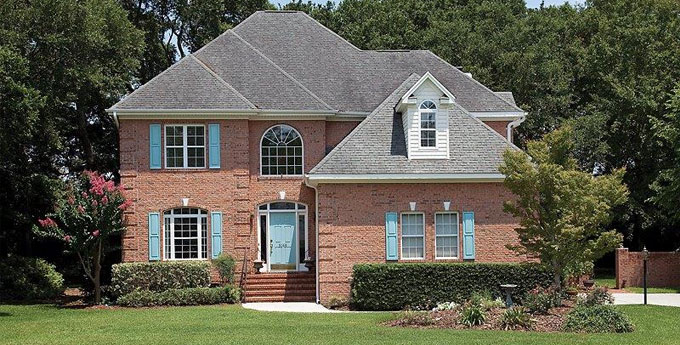You’ve found the home that speaks to you. You’re ready to buy. Once you’ve found a home, you will make an offer via an Offer to Purchase and Contract with earnest money deposit. On homes under $300,000 this amount is generally $1,000 to $5,000 or less depending on the other terms of the contract. This money will be .put towards the money you will be bringing to closing.
We will have already chosen an attorney whose primary job is research title to the property to make sure it is sold to you free and clear of any encumbrances. They will review the loan paperwork and provide you with your new deed which actually transfers ownership from one party to another. They will also procure title insurance for you which ensures that another party cannot come after you in years to come laying claim to your property.
Usually a day prior to closing I will review with you the HUD or Settlement statement which will outline all your charges. You will bring a Cashier’s check or certified funds from your bank to pay the difference between your loan and the amount due at closing; this can be gotten easily/quickly from your bank. Presumably you will have already started to work with a lender whose rates and service look attractive. It is now time to actually apply for your loan. In most instances, you will be required to pay a loan application fee and appraisal fee at that time which runs approximately $50 application and $300-$350 appraisal. You will also be gathering paperwork necessary for your loan which often includes bank statements, tax returns, and various debt verifications (car loans, etc). If you are purchasing a home jointly and are using more than one income to qualify for a loan, both parties will sign the Offer to Purchase and Contract, and both will sign all loan documents. It is possible for one party to qualify for the loan and yet both be on the deed for the property. Although loans can be underwritten in as little as two to three weeks, given the time it takes for all other closing actions, we usually feel more comfortable with a 6 week closing period. Anything over 8 weeks may be considered excessive by a seller when considering an offer, unless they are in unusual circumstances that necessitate a longer contract period.
You will be required to have property insurance by the day of closing, unless you are buying the property outright (in which case, insurance can be procured at any time). You should start working on this immediately after going under contract. Rates vary, and are dependent on many factors – amount of deductible, proximity to a fire hydrant, proximity to water, size, age, etc. You will likely have a two part policy: Hazard (which covers fire, etc) and Wind/Hail (which will cover hurricane, etc). Flood insurance will be required if you are in a FEMA marked flood zone. Some buyers get flood insurance even if they are not in a designated
Buyers often turn to the same company that carries their car insurance as you will often receive a discount for multiple coverages.
Ok, you have your loan application going and insurance quotes coming in. As your agent, I will have recommended some local home inspectors (you will make the final decision) to inspect the property for any contractual deficiencies. It is important to remember that inspectors are generalists. If you are uncomfortable with the condition of any systems specific to this property, you may want to consider specific inspections in addition to your home inspection. Although you will have signed a North Carolina State property disclosure, in which the seller represents whether or not he/she knows of any defects with the property, the inspectors you hire will help us verify the property’s condition. The cost for this service depends on size, but for a home in the 1500-2000 range, it will likely run $425. This (as well as the termite inspection – $85) can be paid for at closing together with any other fees you will incur with your loan, association dues, etc. After the inspection, we will draft a repair agreement in which you request that certain repairs be completed prior to closing. After repairs are completed, you can ask for the inspector to go back for a re-inspection (generally this is cost another $75), or you can review any invoices the seller has from completing the work. Often sellers will complete the work themselves which can be a tender issue depending on the scope of the project. Some inspectors won’t re-inspect repairs not completed by a licensed contractor.
The termite report will be done simultaneous to the home inspection. I find it valuable to have the home inspector review any termite damage (if any) the termite inspector finds just to be sure that it hasn’t affected the structural integrity of the home. In the past, sellers have been responsible for termite treatment which can run in the high hundreds (and more), although our new contracts may be challenging that assumption. Termite inspectors also check for wetness/mold in a crawl space.
Your loan should be well under way, and you will receive an appraisal of the property. Remember that the purpose of the appraisal is for a lending institution to confirm that their investment is protected. The written appraisal will be included in the documents provided to you at closing.
Attorney’s fees are in the $500 range. Closing takes approximately two hours during which you will generally receive your keys. The property is not yours until your new deed is recorded at the court house which often takes place as many as 3-4 hours after you leave the closing table.

